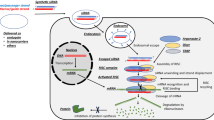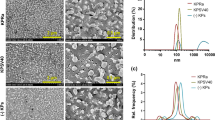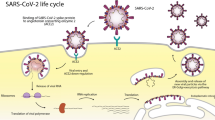Abstract
Neuroinflammation constitutes a principal process involved in the progression of various central nervous system (CNS) disorders, including Parkinson’s disease, Alzheimer’s disease, ischemic stroke, and traumatic brain injury. The safety and efficacy of potential neuroprotective therapeutic agents is controversial and limited. Alpha-melanocyte-stimulating hormone (α-MSH) as a tridecapeptide derived from pro-opiomelanocortin displays potent anti-inflammatory and protective effects with a wide therapeutic window in brain damage. However, it is difficult to deliver effective concentrations of α-MSH into brain tissue via nondirect application. Besides, the half-life of the tridecapeptide is only a few minutes. In the present study, we generated a novel TAT-HSA-α-MSH by genetically fusing α-MSH with N-terminus 11-amino acid protein transduction domain of the human immunodeficiency virus Tat protein (TAT) and human serum albumin (HSA), which showed favorable pharmacokinetic properties and can effectively cross the blood brain barrier (BBB). The findings showed that TAT-HSA-α-MSH significantly inhibits NF-κB activation in human glioma cells A172 and tumor necrosis factor-α (TNF-α) production in experimental brain inflammation. These results indicate that TAT-HSA-α-MSH may be a potential therapeutic agent for treating neuroinflammation which plays a fundamental role in CNS disorders.






Similar content being viewed by others
References
Ahmed TJ, Montero-Melendez T, Perretti M, Pitzalis C (2013) Curbing inflammation through endogenous pathways: focus on melanocortin peptides. Int J Inflamm 2013:985815. doi:10.1155/2013/985815
Allison DJ, Ditor DS (2014) The common inflammatory etiology of depression and cognitive impairment: a therapeutic target. J Neuroinflammation 11:151. doi:10.1186/s12974-014-0151-1
Andersen JT, Pehrson R, Tolmachev V, Daba MB, Abrahmsen L, Ekblad C (2011) Extending half-life by indirect targeting of the neonatal Fc receptor (FcRn) using a minimal albumin binding domain. J Biol Chem 286:5234–5241. doi:10.1074/jbc.M110.164848
Asoh S, Ohta S (2008) PTD-mediated delivery of anti-cell death proteins/peptides and therapeutic enzymes. Adv Drug Deliv Rev 60:499–516. doi:10.1016/j.addr.2007.09.011
Brzoska T, Luger TA, Maaser C, Abels C, Bohm M (2008) Alpha-melanocyte-stimulating hormone and related tripeptides: biochemistry, antiinflammatory and protective effects in vitro and in vivo, and future perspectives for the treatment of immune-mediated inflammatory diseases. Endocr Rev 29:581–602. doi:10.1210/er.2007-0027
Cai B, Lin Y, Xue XH, Fang L, Wang N, Wu ZY (2011) TAT-mediated delivery of neuroglobin protects against focal cerebral ischemia in mice. Exp Neurol 227:224–231. doi:10.1016/j.expneurol.2010.11.009
Catania A (2007) The melanocortin system in leukocyte biology. J Leukoc Biol 81:383–392. doi:10.1189/jlb.0706426
Catania A (2008) Neuroprotective actions of melanocortins: a therapeutic opportunity. Trends Neurosci 31:353–360. doi:10.1016/j.tins.2008.04.002
Catania A, Gatti S, Colombo G, Lipton JM (2004) Targeting melanocortin receptors as a novel strategy to control inflammation. Pharmacol Rev 56:1–29. doi:10.1124/pr.56.1.1
Catania A, Lonati C, Sordi A, Carlin A, Leonardi P, Gatti S (2010) The melanocortin system in control of inflammation. Sci World J 10:1840–1853. doi:10.1100/tsw.2010.173
Chen X, Zaro JL, Shen WC (2013) Fusion protein linkers: property, design and functionality. Adv Drug Deliv Rev 65:1357–1369. doi:10.1016/j.addr.2012.09.039
Chuang VTG, Kragh-Hansen U, Otagiri M (2002) Pharmaceutical strategies utilizing recombinant human serum albumin. Pharm Res-Dordr 19:569–576
Doeppner TR, El Aanbouri M, Dietz GP, Weise J, Schwarting S, Bahr M (2010) Transplantation of TAT-Bcl-xL-transduced neural precursor cells: long-term neuroprotection after stroke. Neurobiol Dis 40:265–276. doi:10.1016/j.nbd.2010.05.033
Duttaroy A, Kanakaraj P, Osborn BL, Schneider H, Pickeral OK, Chen C, Zhang G, Kaithamana S, Singh M, Schulingkamp R, Crossan D, Bock J, Kaufman TE, Reavey P, Barber MC, Krishnan SR, Garcia A, Murphy K, Siskind JK, McLean MA, Cheng S, Ruben S, Birse CE, Blonde O (2005) Development of a Long-Acting Insulin Analog Using Albumin Fusion Technology. Diabetes 54:251–258
Fanali G, di Masi A, Trezza V, Marino M, Fasano M, Ascenzi P (2012) Human serum albumin: from bench to bedside. Mol Asp Med 33:209–290. doi:10.1016/j.mam.2011.12.002
Finsen B, Owens T (2011) Innate immune responses in central nervous system inflammation. FEBS Lett 585:3806–3812. doi:10.1016/j.febslet.2011.05.030
Forslin Aronsson A, Spulber S, Oprica M, Winblad B, Post C, Schultzberg M (2007) Alpha-MSH rescues neurons from excitotoxic cell death. J Mol Neurosci:MN 33:239–251. doi:10.1007/s12031-007-0019-2
Gantz I, Fong TM (2003) The melanocortin system. Am J Physiol Endocrinol Metab 284:E468–E474. doi:10.1152/ajpendo.00434.2002
Giuliani D, Minutoli L, Ottani A, Spaccapelo L, Bitto A, Galantucci M, Altavilla D, Squadrito F, Guarini S (2012) Melanocortins as potential therapeutic agents in severe hypoxic conditions. Front Neuroendocrinol 33:179–193. doi:10.1016/j.yfrne.2012.04.001
Gonzalez H, Elgueta D, Montoya A, Pacheco R (2014) Neuroimmune regulation of microglial activity involved in neuroinflammation and neurodegenerative diseases. J Neuroimmunol 274:1–13. doi:10.1016/j.jneuroim.2014.07.012
Gump JM, Dowdy SF (2007) TAT transduction: the molecular mechanism and therapeutic prospects. Trends Mol Med 13:443–448. doi:10.1016/j.molmed.2007.08.002
Holdeman M, Lipton JM (1985) Antipyretic activity of a potent α-MSH Analog. Peptides 6:273–275
Huang Y, Rao Y, Feng C, Li Y, Wu X, Su Z, Xiao J, Xiao Y, Feng W, Li X (2008) High-level expression and purification of Tat-haFGF19-154. Appl Microbiol Biotechnol 77:1015–1022. doi:10.1007/s00253-007-1249-5
Ichiyama T, Zhao H, Catania A, Furukawa S, Lipton JM (1999) alpha-melanocyte-stimulating hormone inhibits NF-kappaB activation and IkappaBalpha degradation in human glioma cells and in experimental brain inflammation. Exp Neurol 157:359–365
Jeong HJ, Kim DW, Kim MJ, Woo SJ, Kim HR, Kim SM, Jo HS, Hwang HS, Kim DS, Cho SW, Won MH, Han KH, Park JS, Eum WS, Choi SY (2012) Protective effects of transduced Tat-DJ-1 protein against oxidative stress and ischemic brain injury. Exp Mol Med 44:586–593. doi:10.3858/emm.2012.44.10.067
Kielian T (2006) Toll-like receptors in central nervous system glial inflammation and homeostasis. J Neurosci Res 83:711–730. doi:10.1002/jnr.20767
Kincses ZT, Vecsei L (2011) Pharmacological therapy in Parkinson’s disease: focus on neuroprotection. CNS Neurosci Ther 17:345–367. doi:10.1111/j.1755-5949.2010.00150.x
Koistinaho M, Koistinaho J (2005) Interactions between Alzheimer’s disease and cerebral ischemia—focus on inflammation. Brain Res Rev 48:240–250. doi:10.1016/j.brainresrev.2004.12.014
Kratz F (2008) Albumin as a drug carrier: design of prodrugs, drug conjugates and nanoparticles. J Control Release 132:171–183. doi:10.1016/j.jconrel.2008.05.010
Kumar A, Loane DJ (2012) Neuroinflammation after traumatic brain injury: opportunities for therapeutic intervention. Brain Behav Immun 26:1191–1201. doi:10.1016/j.bbi.2012.06.008
Lucas SM, Rothwell NJ, Gibson RM (2006) The role of inflammation in CNS injury and disease. Br J Pharmacol 147(Suppl 1):S232–S240. doi:10.1038/sj.bjp.0706400
Mattson MP, Camandola S (2001) NF-κB in neuronal plasticity and neurodegenerative disorders. J Clin Invest 107(3):247–254
Merkler DJ (1994) C-Terminal amidated peptides: production by the in vitro enzymatic amidation of glycine-extended peptides and the importance of the amide to bioactivity. Enzyme Microb Tech. 116
Miller AH, Maletic V, Raison CL (2009) Inflammation and its discontents: the role of cytokines in the pathophysiology of major depression. Biol Psychiatry 65:732–741. doi:10.1016/j.biopsych.2008.11.029
Minnerup J, Sutherland BA, Buchan AM, Kleinschnitz C (2012) Neuroprotection for stroke: current status and future perspectives. Int J Mol Sci 13:11753–11772. doi:10.3390/ijms130911753
Osborn BL, Sekut L, Corcoran M, Poortman C, Sturm B, Chen G, Mather D, Lin HL, Parry TJ (2002) Albutropin: a growth hormone–albumin fusion with improved pharmacokinetics and pharmacodynamics in rats and monkeys. Eur J Pharmacol 456:149–158
Paxinos G, Franklin KBJ (2002) The mouse brain in stereotaxic coordinates. Academic, New York
Prajapati KD, Sharma SS, Roy N (2011) Current perspectives on potential role of albumin in neuroprotection. Rev Neurosci 22:355–363. doi:10.1515/RNS.2011.028
Rajora N, Boccoli G, Burns D, Sharma S, Catania AP, Lipton JM (1997) alpha-MSH modulates local and circulating tumor necrosis factor-alpha in experimental brain. J Neurosci 17(6):2181–2186
Schwarze SR, Ho A, Vocero-Akbani A, Dowdy SF (1999) In vivo protein transduction: delivery of a biologically active protein into the mouse. Science 285:1569–1572
Subramanian GM, Fiscella M, Lamouse-Smith A, Zeuzem S, McHutchison JG (2007) Albinterferon alpha-2b: a genetic fusion protein for the treatment of chronic hepatitis C. Nat Biotechnol 25:1411–1419. doi:10.1038/nbt1364
Tanaka R, Ishima Y, Enoki Y, Kimachi K, Shirai T, Watanabe H, Chuang VT, Maruyama T, Otagiri (2014) Therapeutic impact of human serum albumin-thioredoxin fusion protein on influenza virus-induced lung injury mice. Front Immunol 5:561. doi:10.3389/fimmu.2014.00561
Thompson AM, Trujillo JM (2015) Dulaglutide: the newest GLP-1 receptor agonist for the management of type 2 diabetes. Ann Pharmacother 49:351–359. doi:10.1177/1060028014564180
Tsubaki M, Terashima I, Kamata K, Koga A (2013) C-terminal modification of monoclonal antibody drugs: amidated species as a general product-related substance. Int J Biol Macromol 52:139–147. doi:10.1016/j.ijbiomac.2012.09.016
Tyagi E, Agrawal R, Nath C, Shukla R (2008) Influence of LPS-induced neuroinflammation on acetylcholinesterase activity in rat brain. J Neuroimmunol 205:51–56. doi:10.1016/j.jneuroim.2008.08.015
Wilson JF (1988) Low permeability of the blood-brain barrier to nanomolar concentrations of immunoreactive alpha-melanotropin. Psychopharmacology 96:262–266
Yin P, Luby TM, Chen H, Etemad-Moghadam B, Lee D, Aziz N, Ramstedt U, Hedley ML (2003) Generation of expression constructs that secrete bioactive alphaMSH and their use in the treatment of experimental autoimmune encephalomyelitis. Gene Ther 10:348–355. doi:10.1038/sj.gt.3301902
Zhu Y, Bu Q, Liu X, Hu W, Wang Y (2014) Neuroprotective effect of TAT-14-3-3epsilon fusion protein against cerebral ischemia/reperfusion injury in rats. PLoS One 9:e93334. doi:10.1371/journal.pone.0093334
Acknowledgments
This study was supported by the special international cooperation project of Ministry of Science and Technology (2012DFA30480); the key project of Gansu Province science and technology (1002WKDE055); Gansu Province Scientific Research Project Fund (090WCGA900). Fundamental Research Funds for the Central Universities of China (lzujbky-2014-147).
Author information
Authors and Affiliations
Corresponding author
Ethics declarations
The whole experiments involving mice were approved by the Ethics Committee of Experimental Animals of Lanzhou University and carried out in accordance with the Guide for the Care and Use of Laboratory Animals.
Conflict of interest
The authors declare that they have no competing interests.
Rights and permissions
About this article
Cite this article
Wang, M., Zhi, D., Wang, H. et al. TAT-HSA-α-MSH fusion protein with extended half-life inhibits tumor necrosis factor-α in brain inflammation of mice. Appl Microbiol Biotechnol 100, 5353–5361 (2016). https://doi.org/10.1007/s00253-015-7251-4
Received:
Revised:
Accepted:
Published:
Issue Date:
DOI: https://doi.org/10.1007/s00253-015-7251-4




